At the Olympic Games Paris 2024, I had the opportunity to see how Intel’s AI platforms were being used to scout future talent. While I am probably too old to be a future prospect, it was cool to see how AI is lowering the cost and expanding the reach of performance evaluation.
Video Version
For most STH content, we try to have similar web articles and videos. This is one that, like a tour, it is probably better to just watch. For me, it is easily one of my top 3 favorite videos we have done:
This was perhaps one of the most fun projects I have been able to do with STH. Thank you to Intel for sponsoring this. Filming at the Olympics was not just costly, but it meant we needed a sponsor’s blessing. If folks are interested in the process even to make this happen, feel free to let me know in the comments.
How AI Platforms Are Being Used to Scout Future Athletes at the Olympics
At the Olympic Games, there was an Intel AI Platform installation at Stade de France. During the Rugby Sevens matches, I was able to do the experience, and even get a look behind the scenes at what is powering everything.
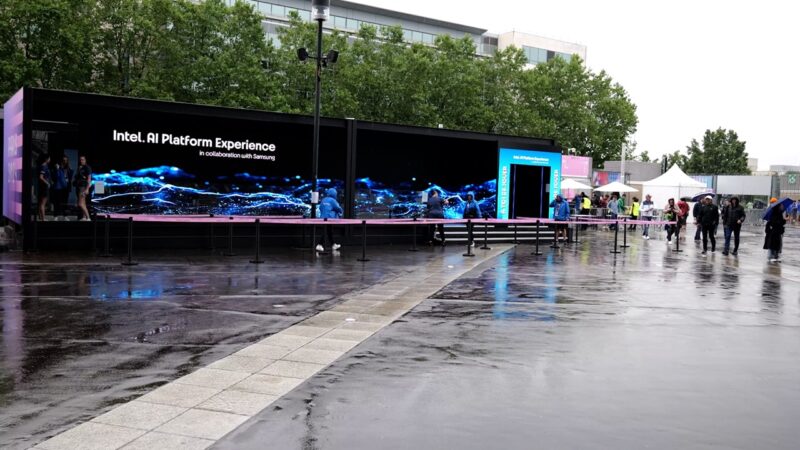
The first step is to use an Intel RealSense camera to take your height and wingspan measurements.
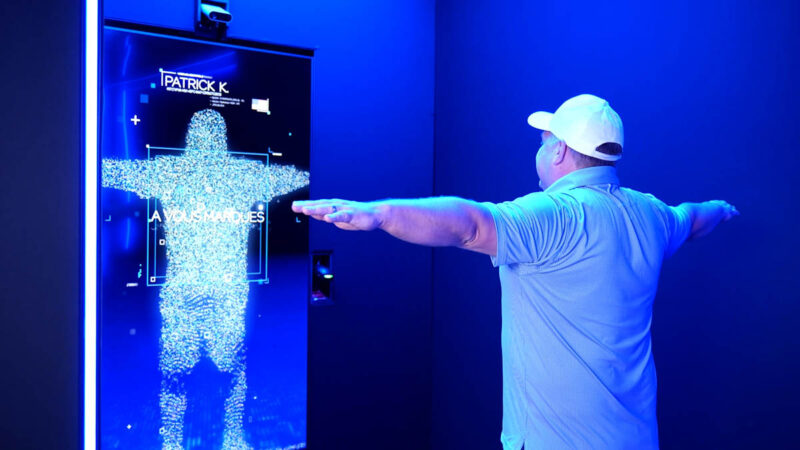
Second, you run in place to see your speed and endurance.
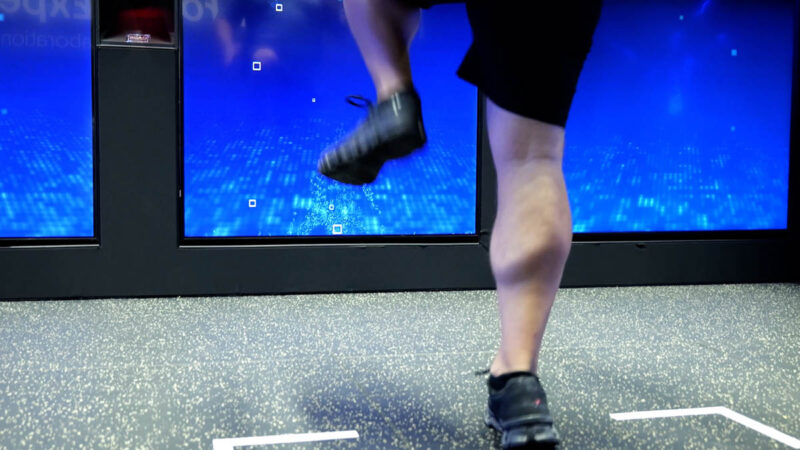
Immediately after running in place, you do a hit the puck with the blue light test for your coordination and reaction time.
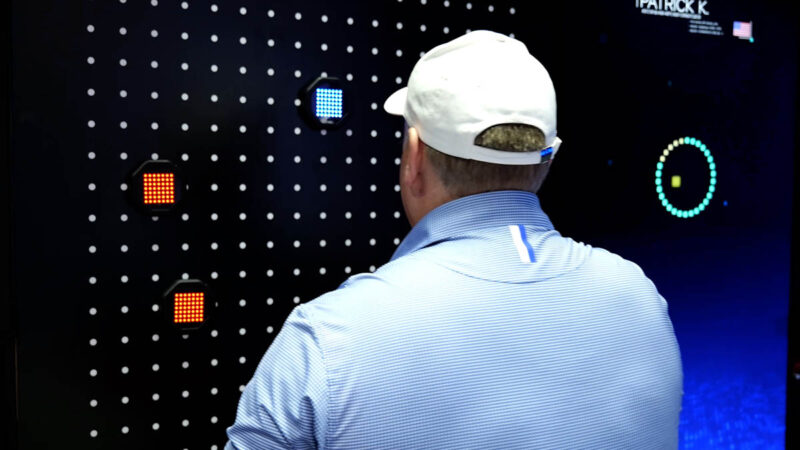
That is followed by a station where you grip a dyno as hard as you can and jump.
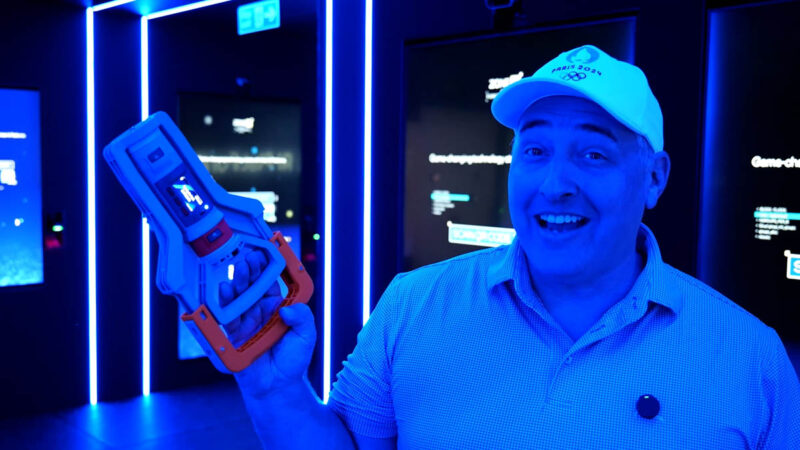
These help take measurements for arm and leg strength.
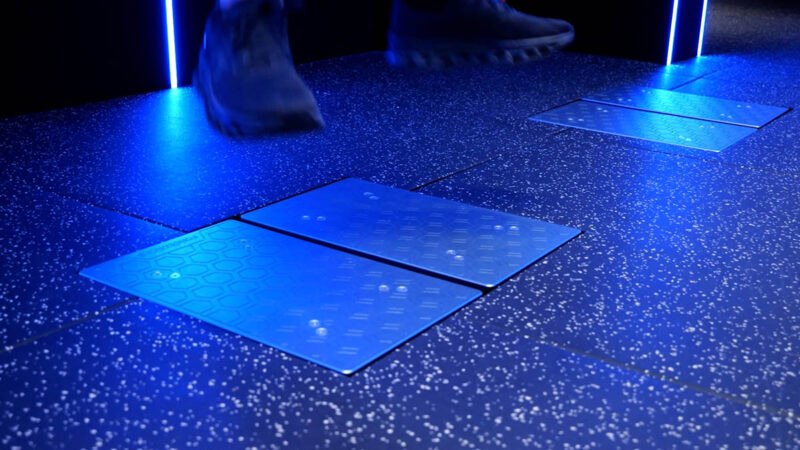
Finally, you do an 8-meter run to test speed.
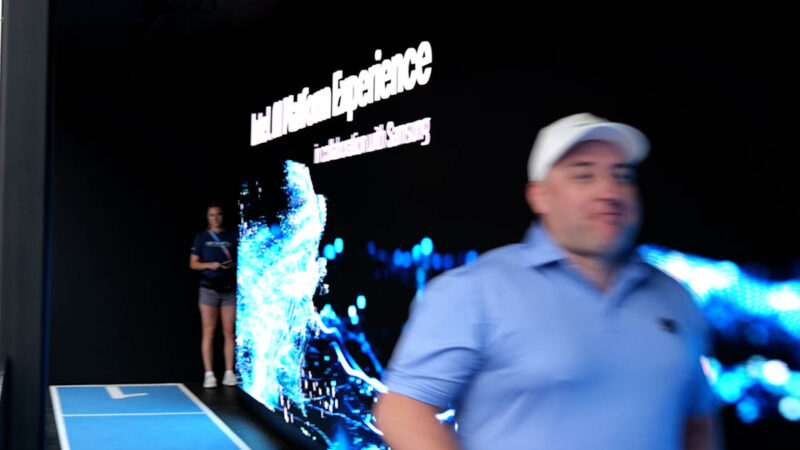
Data collected through these activities is compared to a database of athletes across different sports.
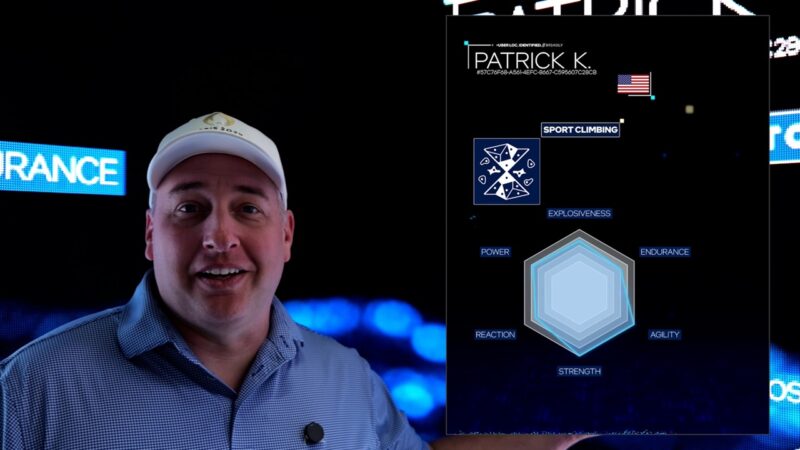
From there, a mapping between the measured data and database yields a suggested sport.
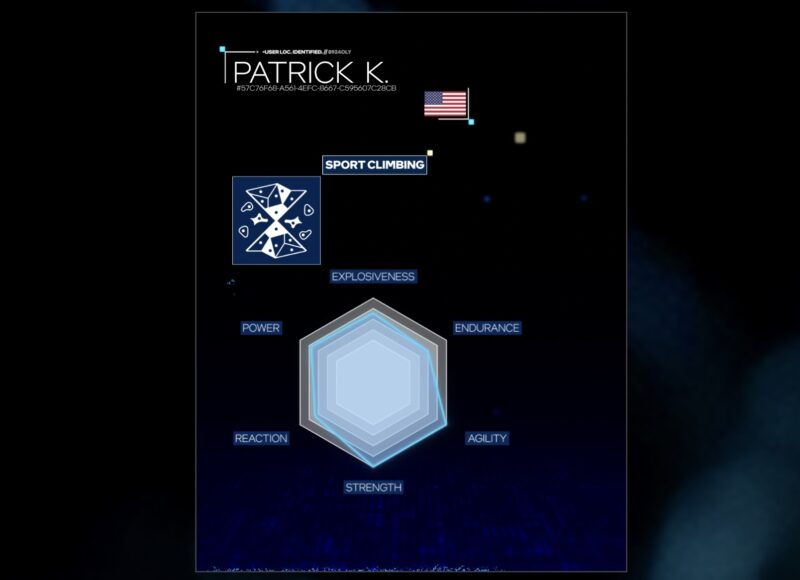
I am probably not going to a future Olympics as a sport climber, but it was fun to see where I netted out.
The benefit of something like this is simple. Years ago, it would have taken relatively expensive motion capture suits, high-speed, and high-resolution cameras, and so forth to collect the data. Now, relatively inexpensive cameras and sensors can be used. That lower cost means that kits can be sent to more places. For example, a version of this was sent to Senegal, and as future athletes went through the tests, 48 were identified as having attributes at or above elite-level athletes at that stage of their development.
Lower-cost sensor packages go to places that many scouts cannot. While football (soccer) may have an extensive scouting network worldwide, other sports have fewer resources to scout. Using technologies like this AI platform means that global scouting coverage can expand to more sports and more locations than was previously possible.
Behind the Scenes
Unfortunately, we cannot show you who makes the actual boxes behind the scenes, but to understand what is going on here, I was able to get a look behind the scenes.
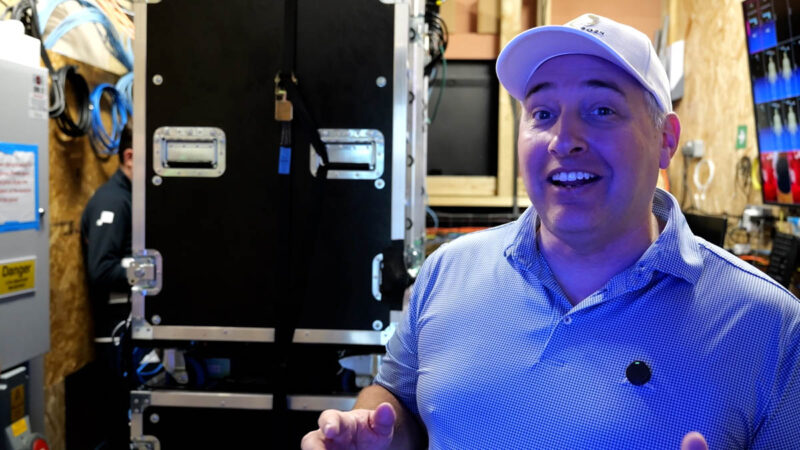
Intel has been taking training data for years and uses Gaudi/ Gaudi 2 to do the model training and optimization. In theory, this eventually moves to Gaudi 3 and is done in the Intel AI Playground.
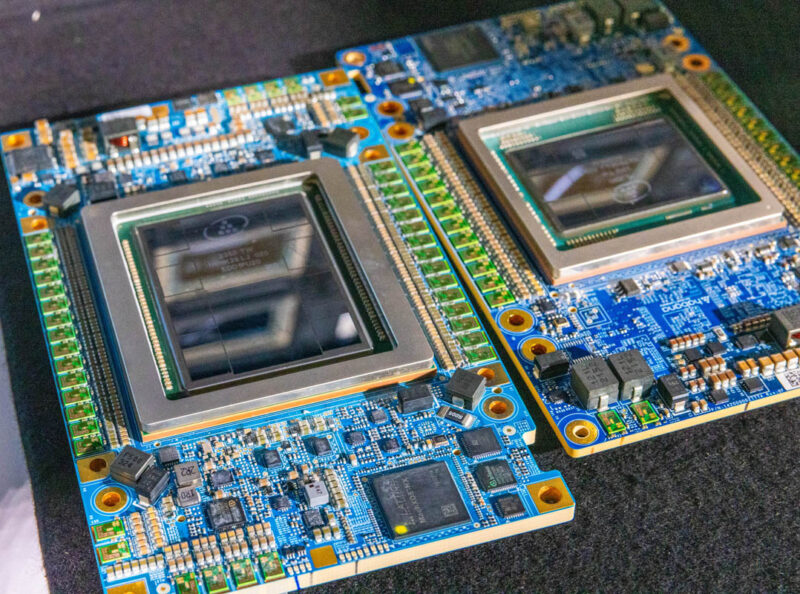
Using OpenVINO, Intel’s open source vision platform, Intel can then bring the compute resources needed to power the different platforms down to something that can be installed outside a stadium. Namely, the higher-end inference is done on 4th Gen Intel Xeon codenamed Sapphire Rapids. Those are data center processors that have features like Intel AMX to help with AI acceleration.
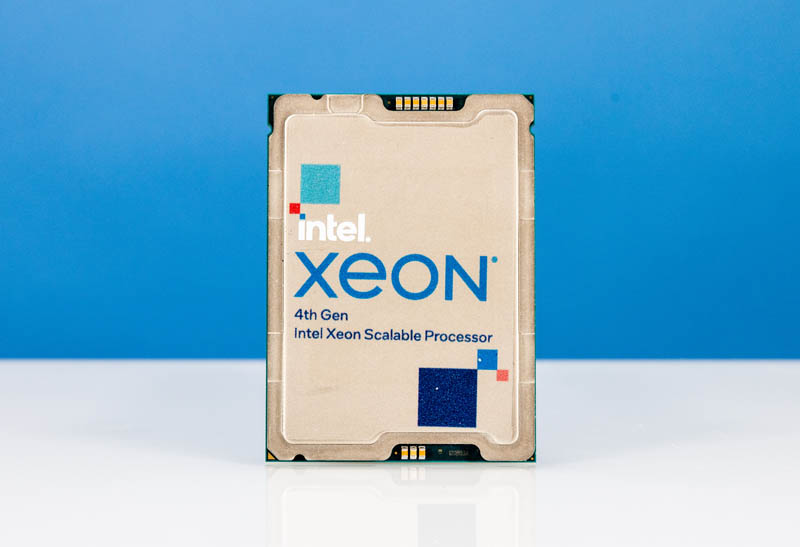
The installation also had many Intel Core i9 processors. Today, most of the acceleration is done on the CPU cores and GPUs, from processing sensor data to rendering the displays. The hope is that much of the sensor processing can be moved to the NPU for additional performance from the same chips.
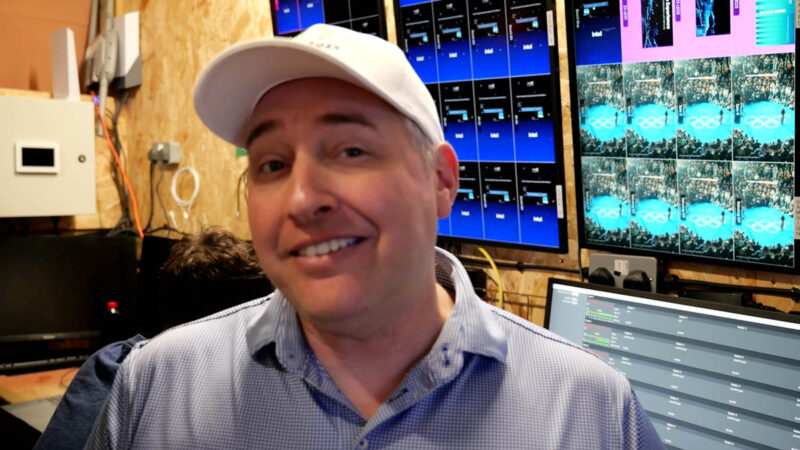
Something worth pointing out here is that the installation has video walls almost everywhere. Each of these displays needs to have data rendered and displayed in real-time and that is also done on the Core i9’s.
Final Words
While many STH readers are not involved in finding the next generational athlete in a specific sport, the point of doing this goes well beyond just sport. Before generative AI took off, tasks like computer vision and using that data and other sensor data as part of AI inference were extremely popular. Indeed, these are applications that are widely deployed today.
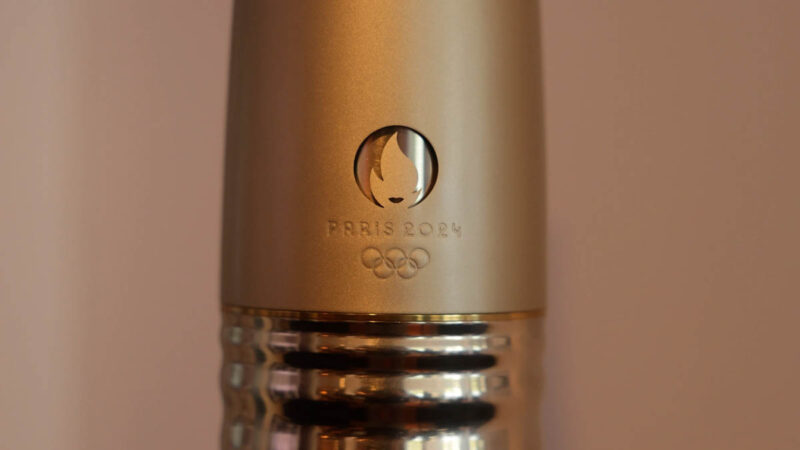
It was very cool to get the experience of seeing a demo running at the Olympics and then getting to see how it worked behind the scenes. It was also very cool to do this kind of project as STH continues to grow. In a week, I am off to film something else for STH that many will find super-cool.

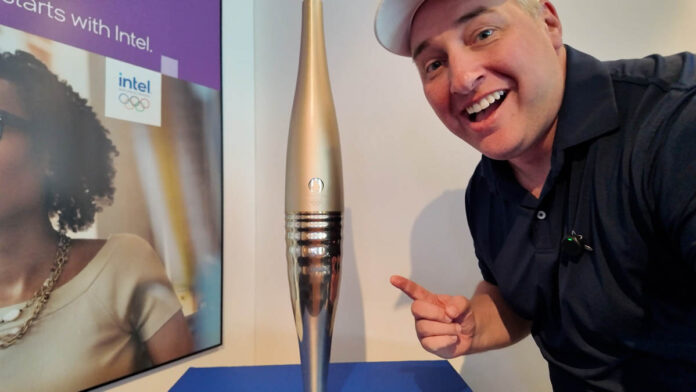


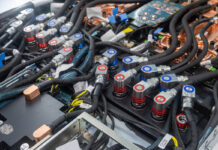
I don’t normally watch your videos, but that’s the best one you’ve ever done.
That video isn’t going as fast as your mean, but it’s killer. That camera work, the backgrounds, and seeing behind. I’d beg you to do more like that.